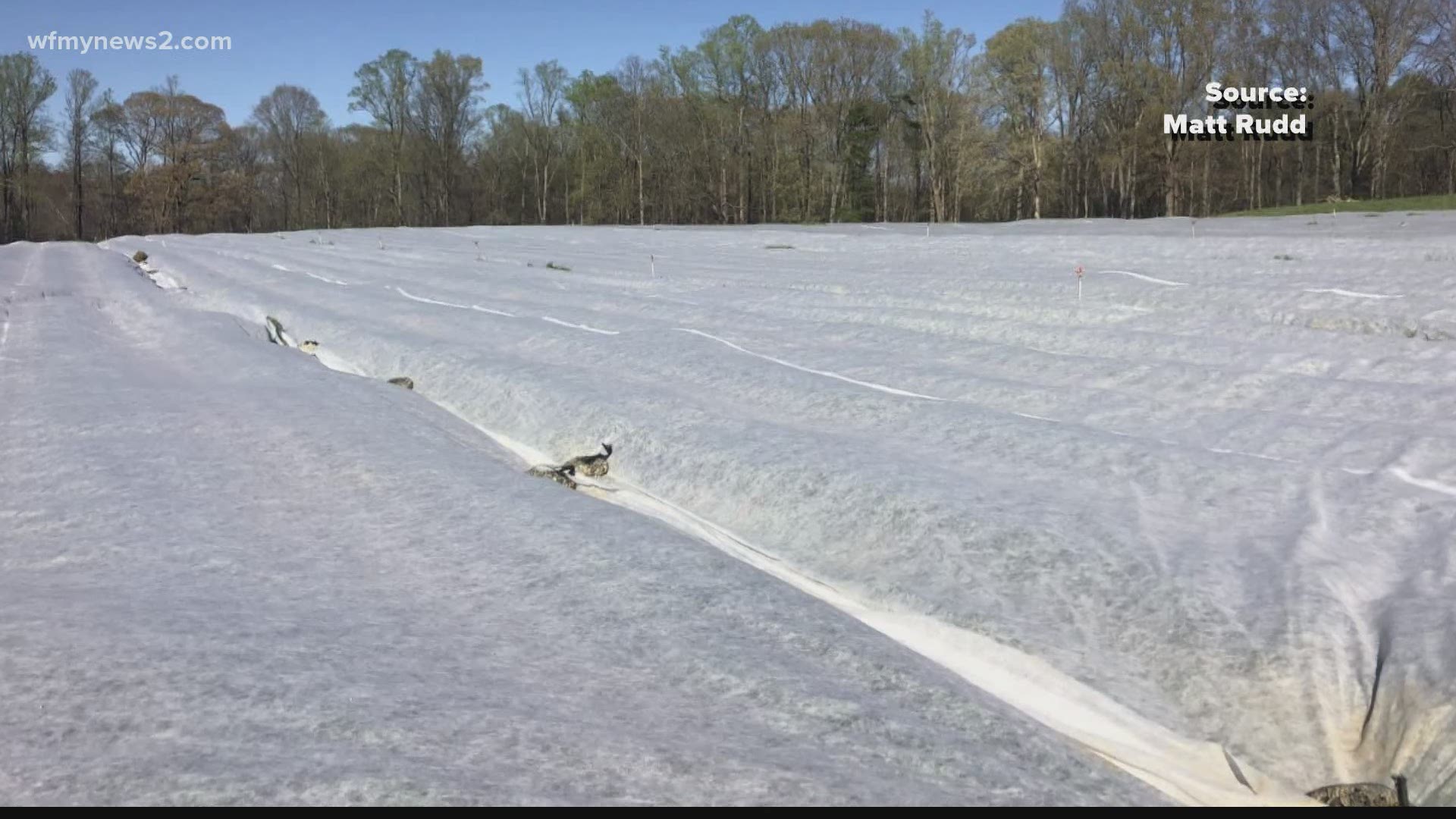GREENSBORO, N.C. — Many farmers are preparing for a cold night Friday and hoping they can keep their crops from being damaged.
The NC Agriculture Extension said it's not unusual to get a freeze like this in early spring but combined with warmer temperatures earlier in the year some crops may be in jeopardy.
Guilford County Extension Agent Ben Grandon said crops like strawberries, grapes and peaches are at risk for losing their flowers due to cold conditions.
"The flower is the most delicate part of these plants so if we lose them we lose the ability for the fruiting potential for the plant," Grandon said.
Rudd Farm in Greensboro covered its rows of strawberry plants Friday afternoon to protect them from near record breaking temperatures.
Matt Rudd said his crop blooming slightly later than average but that's not out of the ordinary.
"It may be some time in that third week (of April) before we’re really going to have a lot of strawberries," Rudd said, "If we don’t protect them right now, potentially where we’re having a late year anyway, we could even be pushed back even later."
He said they usually begin picking berries in the second week of April. Last year's crop came about a week early. The latest they've had was a crop that wasn't ready until early May.
"I don't care when Easter comes, whether it's early, whether it's late-- it seems like it can be these really cool temperatures that come in. This is a tough one for us," Bernie Kenan said.
Kenan runs Bernie's Berries in Greensboro. She said a similar freeze cost them 10 percent of their crop four years ago.
In addition to row covers, Rudd Farm will monitor the temperature of the blooms with a device planted close to the soil.
"If it was to get cold enough, we could actually turn our irrigation on with the water over top of these row covers and that’ll even protect them even more underneath the row cover," Rudd said.
The cold comes with a breeze.
Kenan said high winds tore a hole in one cover, exposing a row of berries.
Rudd's hopeful that the coverings will be enough to keep the blooms safe.
"We could lose a few blooms and stuff under these covers but odds are we won’t lose that many," Rudd said, "We're pretty confident five or so degrees protection so it's not like we'll have to be up all night."
Monitoring the crops will mean waking up early over the next couple of days. Rudd said they will start checking the berries around 4 a.m.
If the crops are damaged, they'll know quickly because the blooms will turn brown. Rudd said they won't know the full extent until they start picking berries.
Both farms are hoping to have berries ready to pick by mid-April, barring any more spring cold snaps.
Experts said you should bring any plants inside if you can. If not, cover them with a bedsheet, cloth or blanket. A plastic tarp may not be thick enough to properly insulate plants.

